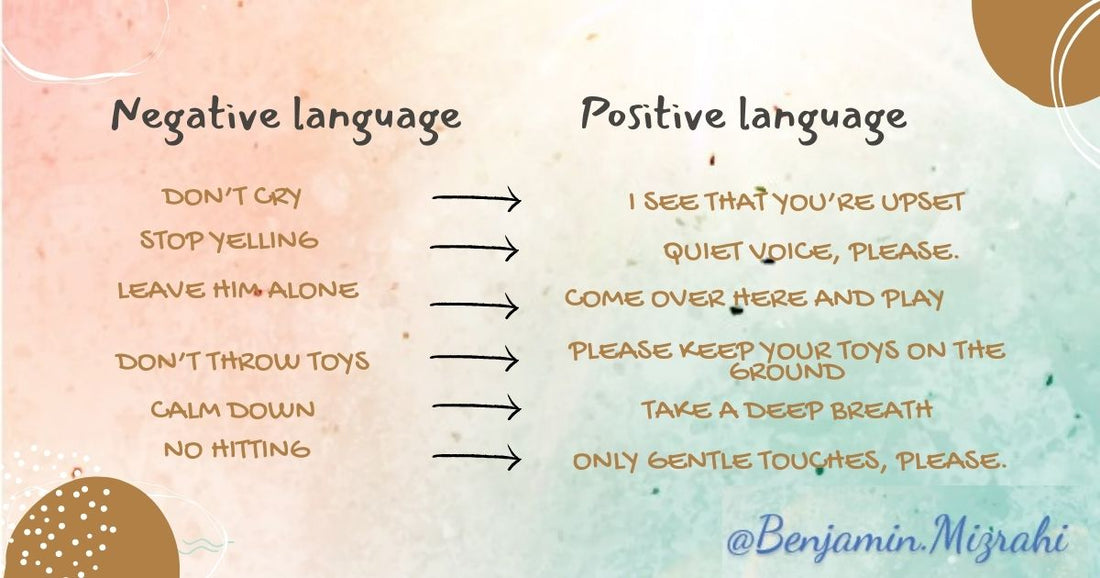
Using Positive Language to Encourage and Empower Children
Share
Our words and tone of voice have a profound effect on children. Positive language is the professional use of words and tone of voice to enable children to learn in an engaged, active way. This includes learning social skills.
Learning to use positive language with children takes time. But you don’t have to do it all at once. Any enhancements you make in your language will do so much to help children choose positive behaviors.
🔸 Replace “don’t” with “do”. Tell your child what she can do! It is more likely that your child will make an appropriate choice when you help her to understand exactly what appropriate options are available.
🔸 Offer a choice. When you provide your child with a choice of things that he can do, wear or go, he is more likely to select one of the options you have offered because it makes him feel like he is in control.
🔸 Tell your child “When.” When your child asks to do something, rather than saying no, acknowledge her wish and tell her when she might be able to do it. This answer feels more like a “yes” to a child.
🔸 Use “first-then” language. Another way to tell a child when he can do something in a positive way is to use a “first-then” statement. For example, you could say “First, pick up your toys and then you may watch a TV show.”
🔸 Give your child time to think. Remember that your child is learning a language. She needs time to think about what you said and how she is going to respond. If you remain calm and patiently repeat the statement again, you will see fewer challenging behaviors and enjoy more quality time with your child
🔸 Help your child to remember. Children are easily distracted. Sometimes your child may need you to help him remember what you asked him to do in order to do it. Stating the information as a simple fact, rather than a command, gives him the information he needs to make the right choice on his own without blaming him or making him feel like he has failed.
Coach Benjamin Mizrahi. Educator. Learning Specialist. Family Coach. Father. Husband.
More articles on www.MrMizrahi.blog
